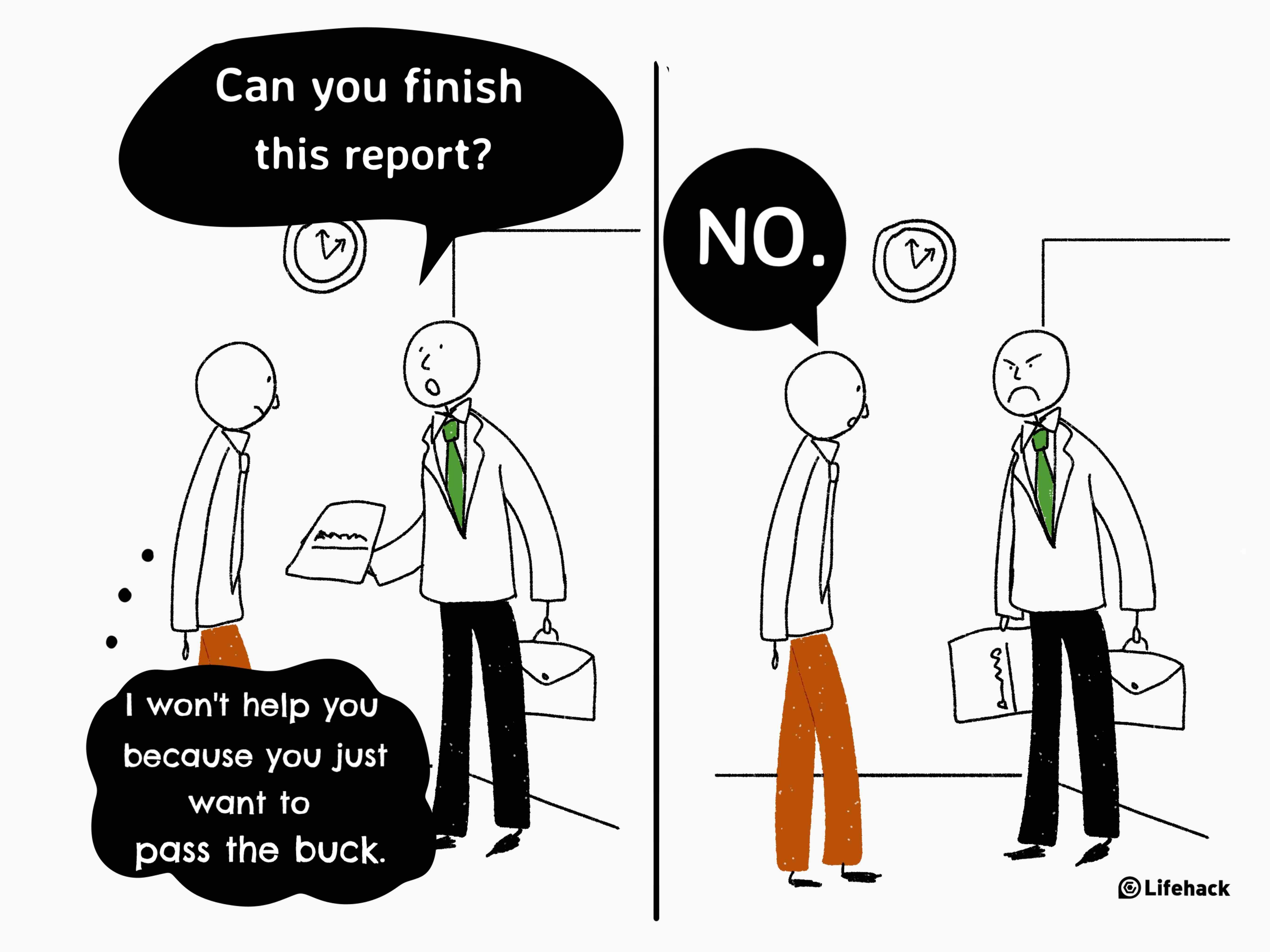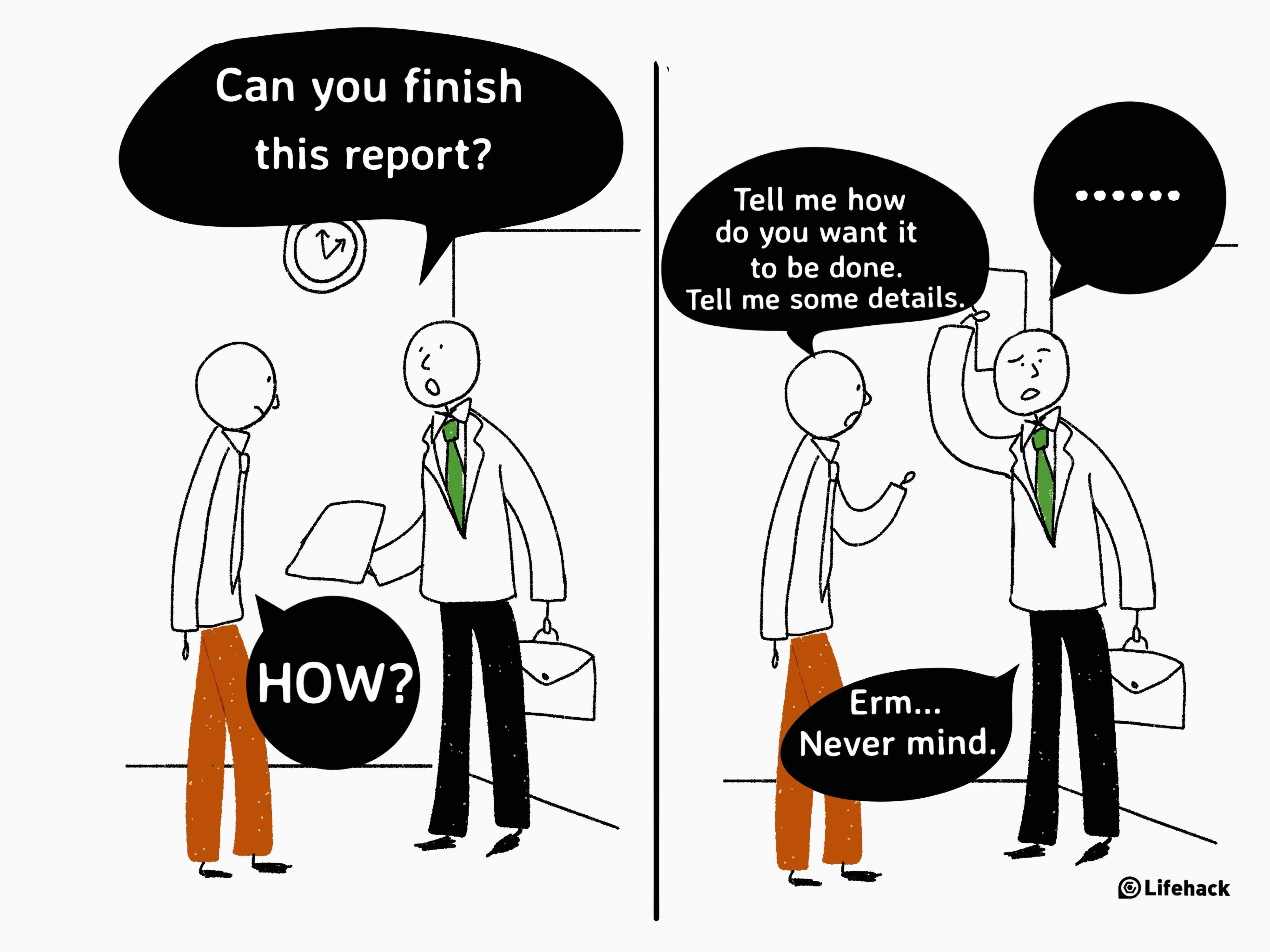When you ask someone for help, it’s tough to hear “No.” Those two little letters can hurt our ego. We start to wonder whether the other person cares about us, and we feel embarrassed for making ourselves vulnerable by asking for help. Because we know how much “No” can hurt, we can fall into the trap of saying “Yes” to someone just to avoid hurting their feelings.
For example, let’s suppose you are having a busy day at the office. There’s a knock on your door; it’s a colleague who needs someone to help them finish an urgent report that’s due by the end of the afternoon. They ask, “Would you help me?” You don’t really have time – you have a lot of your own work to get done – but because you know what it’s like to need help yet not receive it, you tell them that yes, of course you’ll lend them a hand.
Why is it so hard to say “no”?
Even the most independent among us have a natural desire for acceptance. It all stems back to our survival instincts. Early in our evolutionary history, it was important that everyone in a group had each others’ backs. Hence it was better for people to say “Yes, I’ll help you!” or “Yes, I’ll defend you!” This “Yes” habit helped both individual and group survival.
We can live more independent lives these days, but this old instinct is still strong. In addition, we have a desire for social status and belonging. We form attachments to other people, and often want to say “Yes” to others in a bid to win their love and favor.[1]
And when you really manage to say no, the other person feels bad about it (and about you). This is not the result you really hope for.
One question that makes all the difference
So what can you do in situations like this? You don’t want to say “no,” but you don’t want to trample on the other person’s feelings. Luckily, there’s a solution.
Quite simply, when someone asks you for help, ask “How?”
This is less confrontational than “no.” It does not threaten their ego, and it places the ball in their court. “How?” holds them accountable for their role in the transaction. It forces them to spell out precisely what they want and need. If they are not able to willing to step up and engage with you, it’s easier to say “No.”
Asking “how” instead of giving a straight “no” protects the other person’s ego, and respects their need for belonging, self-esteem, popularity, and love. It isn’t a rejection; rather, it will be interpreted as a question and an attempt to solicit feedback.
When you ask “how,” you are encouraging the other person to take charge of the situation by specifying what they require. Even if they aren’t quite sure yet what it is that they need, asking them exactly how you can help will force them to think about the steps that need to be taken in order to complete a task. You will soon be able to tell whether they are in genuine need, or are just looking for someone else to complete their mundane tasks.
Value your time, turn people down
If done in the right way, turning someone down can make others respect you. If you draw firm boundaries, the other person will realize that you are not someone they can push around. Instead, they will see you as someone who holds themselves in high regard.
When you give an impression of confidence, others will pick up on that. In a business setting, marking yourself out as someone who is willing to say “no” to arrogant individuals may increase demand for your services.
The next time someone asks you for help and you don’t want to say “yes,” just ask “how” instead. It’s incredibly simple, yet very effective. It works with colleagues, friends, and relatives. Just think of all the time you’ll save when you stop saying “yes!” to everyone.
Reference
| [1] | ^ | Psychology Today: What Happens When People Who Always Say “Yes” Say “No?” |














































